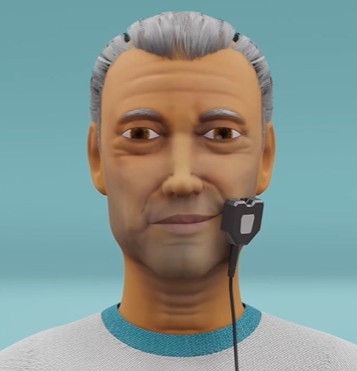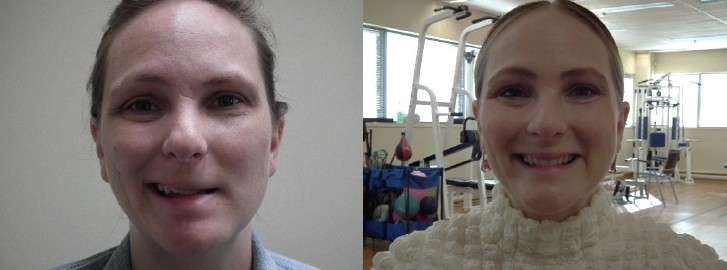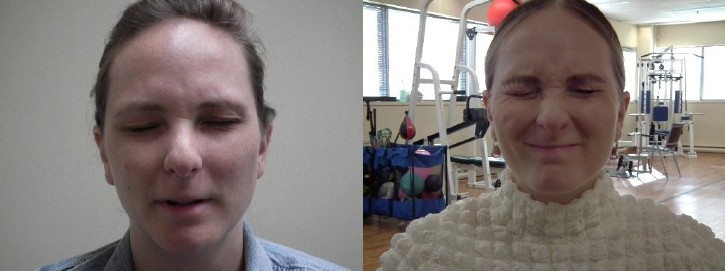Physiotherapy for Bell's Palsy
Do you have facial paresis as a result of Bell’s Palsy, Stroke, or another condition? Facial Paresis Physiotherapy may be right for you.
About Facial Paresis Physiotherapy
Facial Paresis is believed to occur when the 7th cranial nerve, known as the facial nerve, is affected. This can be the result of a viral infection, a neurological condition such as stroke, or head trauma. When the facial muscles are partially or fully paralyzed, it becomes difficult to strengthen and retrain them through a traditional approach due to the lack of perceivable movement. NeuroGym® offers a unique approach using state-of-the-art biofeedback technology that allows clients to improve strength and control.
What to Expect
- Assessment of the facial muscles
- Enhanced therapy using our patented NeuroGym® Trainer (state-of-the-art biofeedback technology)
- Short, efficient, and targeted 30-minute treatment sessions
- Recommendations for at-home exercises
What makes NeuroGym®'s approach unique?
Using the NeuroGym® Trainer gives clients the ability to see a visual representation of their muscle activation in real-time, regardless of whether there is perceivable movement generated. The signals measured through surface electrodes are converted into data, processed by patented algorithms, and used to complete various tasks in the form of computer games. This process promotes neuroplasticity in a motivational and engaging way by reinforcing the neuronal pathways involved in each task.
Specificity and Intensity
The small muscles of the face can be difficult to isolate, especially when motor control and sensation are impaired. The NeuroGym® Trainer employs small surface electrodes, allowing for focus on one muscle group at a time. By playing task-specific games, the client completes a series of high-intensity, speed-sensitive contractions that promote the development of strength and motor control in the muscles targeted.
Synergy
When the facial nerve has been compromised it can be difficult to limit the execution of the movement to the specific muscles that should be involved. This results in an “all-or-nothing” contraction of many or all the facial muscles, occasionally even recruiting muscles down into the neck. The NeuroGym® Trainer can encourage one muscle group, while at the same time, discourage the activity of another, allowing the rehabilitation of facial muscles both individually and in combinations.


Bell's Palsy - Before and After

Conditions and Symptoms
Conditions
- Bell's Palsy
- Stroke
- Ramsay Hunt Syndrome
- Myasthenia Gravis
- Brain Tumor, Trauma, or Surgery
Motor Control Symptoms
- Facial Drooping
- Asymmetrical Expressions
- Involuntary Facial Movements
- Drooling
- Impaired Speech
Sensory Symptoms
- Pain and Tension
- Dry Mouth and Eyes
- Facial Skin Sensitivity
- Altered Taste and Smell
- Ear Pain and Tinnitus
Massage Therapy and Facial Paresis
Like many neurological conditions, Facial Paresis can be accompanied by pain and tension in the affected muscles. Massage Therapy can help address these symptoms with short and gentle treatments of the face and neck. Our Registered Massage Therapist, Peng Tan, can help supplement your Physiotherapy treatments through his insight and experience with neurological conditions.



